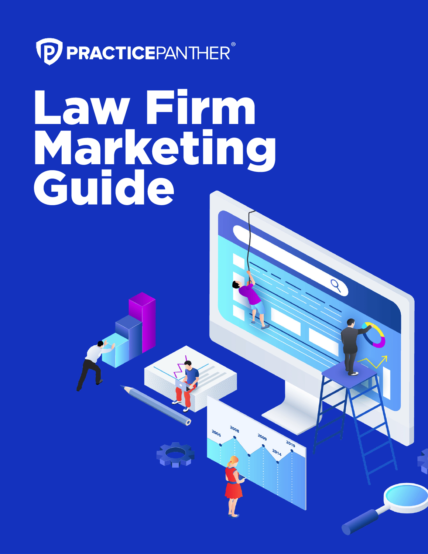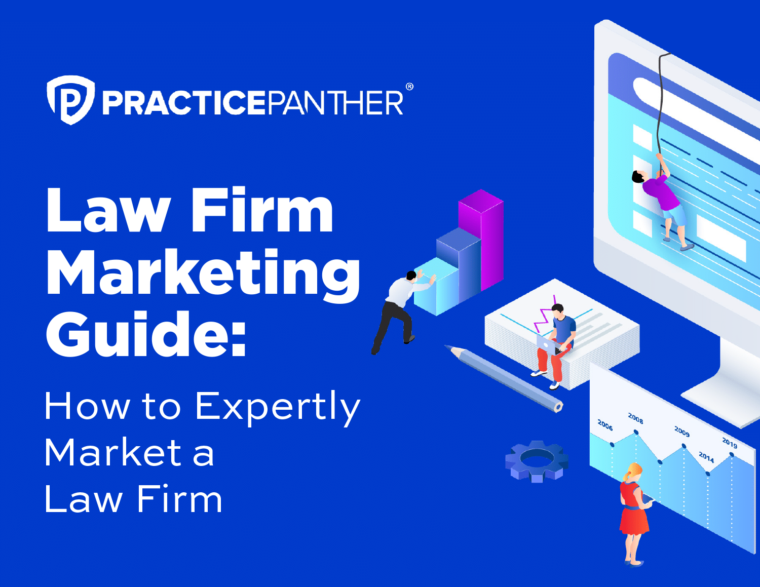In August 2018, Google announced the first of many algorithm updates intended to scrutinize content on websites in industries that it believes have major implications on consumers’ financial standing or health.
Dubbed “your money or your life” content, web pages containing medical, financial, or legal information will receive additional attention from the search engine.
Google looks for evidence of the expertise, authority, and trustworthiness (E-A-T) of the content on these web pages and in the author’s credentials.
If your law practice’s online content fails to measure up to E-A-T, Google will reduce its visibility.
We want to prevent this from happening to you. This blog breaks down exactly what Google is looking for when measuring E-A-T to help you optimize your content so your firm has high search engine visibility.
1. Expertise: Make your team’s credentials as clear as possible on your website
When evaluating expertise, Google wants evidence that content authors on your website have knowledge on the topics covered. Google does not want to spread misinformation, so it tries to discern who is behind a website.
A dedicated “Meet the Team” page on your website, with profiles of the members of your firm, will demonstrate expertise to Google.
These profiles should contain your personnel’s qualifications, relevant experience, and any CLE they have completed.
Ideally, your practice will have a LinkedIn page that contains corresponding profiles of your team, complete with this information.
While Google is sophisticated enough to view your practice’s website as a single entity — and therefore attribute expertise to your website as a whole — it ultimately ranks content on a page by page basis.
This means each page containing legal information should be attributed to whomever at your law firm is best qualified as an authority on that topic. Attribution should be made in an author byline either at the start or end of the page and should link back to the relevant person’s profile on your “Meet The Team” page.
2. Authority: Make sure all claims made on your website are in line with current laws and best legal practices
Google’s ability to process semantics allows it to understand the claims that are made in a post.
The search engine has also identified certain websites and sources as authorities on a particular topic. Authorities vary from industry to industry. Often, government websites, academic websites, and large peer-reviewed journals fall into this category.
If you make claims online that contradict current laws and best legal practices, Google will determine that your content is untrustworthy.
Older blog posts are a risk and should be updated to reflect current best practices.
If the older information on your website is not updated to reflect adaptations in laws, then your practice will lose search engine visibility.
To combat this, audit the content on your website every 3-6 months.
Older posts with out of date information should be deleted, updated, or consolidated into more in-depth articles. Search engines prefer more in-depth posts, so consolidate your posts when possible.
If you make a claim on your website that goes beyond the trivial, cite an authoritative source, such as a government website.
3. Authority: Get your practice and personnel listed in authoritative legal websites
Because Google has indexed large portions of the internet, it knows your practice’s digital footprint. The search engine uses this data to evaluate your practice’s authority.
Getting your firm mentioned on authoritative legal websites will help, especially if they link back to your website.
For most practices, there will be easy, untapped sources of such mentions.
If anyone on your team is a member of a professional organization, check to see if they have a members’ profile page. Many organizations do. If you are not listed, it’s worth asking to be added.
Similarly, if anyone on your team has sponsored or spoken at legal conferences, check if they list speakers on their website and contact them to be listed.
Beyond this, PR activities — such as writing for industry journals, doing local community or pro-bono work, and publishing studies of high profile cases — can get you the types of mentions that increase your authority in the eyes of search engines.
Also, don’t forget that in addition to connecting with journalists and local communities that you haven’t previously reached, you could try reviewing your current circles of influence for opportunities. Those circles include your clients, partners, email subscribers, social media followers, and so on. You’ll be surprised how many sites you already know within your industry that you can use to your advantage.
Building authority is a time-intensive process. Aim to be seen as more authoritative than the websites you are competing against for your search terms. For some search terms, just being mentioned in industry organizations and directories will be enough. For others, employing PR tactics may be necessary.
4. Trustworthiness: Engineer your website to have the “signals” of being an offline business (even if your law firm is fully virtual)
Google wants to reduce the visibility of websites that provide legal information but are neither law firms nor primary sources of legal information.
The websites of “offline businesses” like law firms (and virtual law firms) tend to have some similarities in their digital footprints. These include:
- A Google My Business Page
- A “Contact Us” page with a physical location
- Local directory listings
- Reviews from customers
- Social media presence
Google looks for these signals to distinguish the website of an actual legal practice from a website that contains legal information written by a layperson.
Making sure that your website has these signals in its digital footprint will increase your perceived trustworthiness.
Remember: your practice should benefit from these updates
Google’s effort to rank legitimate sources of legal information should benefit your practice.
Google only wants to reduce the search visibility of websites giving out legal advice and information without having the requisite credentials to do so. Make sure that the above points are in place for your practice’s website and your search engine visibility should improve.
*This article was written in partnership with RightlyWritten Inc., a copywriting agency that works with law firms who want to expand their digital presence.




